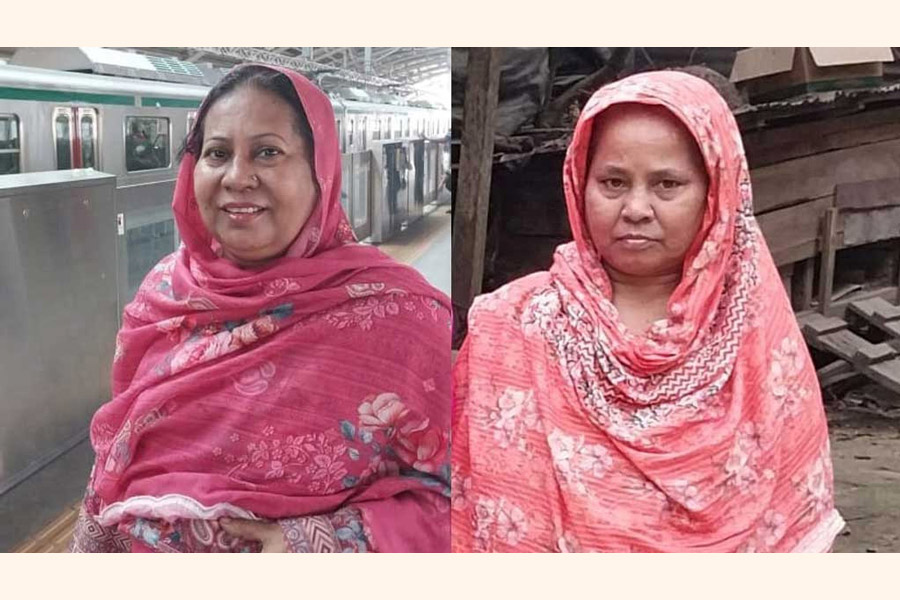
Published :
Updated :

If the ultimate crime is homicide, Bangladesh has perhaps been witnessing a higher incidence of it lately. The recent surge in murder has a fair share in political vendetta. But this has also acted as a powerful provocation for settling scores where personal, family and land disputes are involved. Grisly and bone-chilling all kinds of murders may be to a sensitive and delicate mind, but the general perception of taking away lives has become one of helpless acceptance.
Two incidents of murder that took place on Friday and Saturday last ---one in the capital's Shewrapara and the other in Kurigram, a northern district, provide a disturbing insight into the growing mentality of monstrosity. Both are blood chilling and yet the motives differ widely. In the Shewrapara incident, a teenage boy aged only 14 ended up killing two of his aunts (elder sisters of his mother). He came all the way from his residence in Shanir Akhra, Jatrabari with the motive of managing Tk 3,000 he needed for purchasing a second-hand bicycle. On his arrival, his eldest aunt entered the kitchen for preparing sherbet to entertain her nephew but the boy took advantage of her momentary absence to steal Tk 3,000 from her moneybag in the bedroom. Unfortunately for them, she came at the right moment to see his act of theft. As she mildly rebuked the boy and tried to inform his mother, her youngest sister, of his act, the boy took hold of the kitchen knife to stab her and when she cried for help, her younger sister came out from another room to save her. But the boy was quick enough to stab this woman too.
Up to this, the act could be termed something very rash committed at the heat of the moment. But what he did next is nothing short of the devious performance professional killers would engage in. He brought the cylindrical stone called 'nora' in Bangla, which is used as a grinding tool, from the kitchen to strike both women's heads in order to ensure their death. Then he left and even attended the last rites of one of his murdered aunts in Jhalakathi. His mental plunge into the abyss defies any logic.
The Saturday's murder in Kurigram is even more bizarre and sinister. Here parents of a 15-year-old daughter, a student of class IX, killed her in collaboration with the girl's aunt, wife of her uncle (brother to his father) with the ulterior motive of implicating their opponents with whom they have a dispute over 32-bigha land property. The girl was hacked with sharp billhook and rod before leaving the body in a maize field. It is impossible to fathom the depth of darkness and derangement of human mind.
Since the mass murder of July-August uprising, there has been a shift in the criminally bent people's attitude towards crime including the horrific murder. They consider it an opportunity to go about such morally wrong and legally impermissible acts, taking cues from such rising incidents and advantage of the perceptible laxity on the part of the law enforcement agencies.
Even this mentality of criminals would not have been a cause for as much concern as it has become with the moral slide and debasement of people who were supposed to have retracted from such heinous acts because of their traditional mental orientation based on moral teaching irrespective of religions; and social values of life's sacrosanctity. This special kind of criminality has had its sway on unlikely mortals with no criminal records--- either personal or of families. Even teenagers have become accustomed to committing homicides like hardened criminals.
The rise of teenage gangsters after the model of their senior terror groups who once had built their entrenched underground bastions in the capital city speaks volume for the new twist to the trend of crimes. If the new generation is looking for swaggerish self-importance and influence by way of demonstrating their capacity to kill at will, some of them deliver in a significant number of cases the mortal blow out of nervousness and at the heat of the moment. To do so they have to cross a psychological barrier, a threshold of natural inhibition they inherit from the family and social tradition backed up by moral or ethical standards set by religion, education and culture.
Today, people, young ones included, can easily overcome the psychological barrier to commit the ultimate crime. To some hired criminals, this is nothing but sport. Leaving them aside, the mental transition of common people for the worse is what makes society full of apprehension. People's confidence in human virtues, social bonds and sincerity of relations erodes beyond repair.
Society's incapacity to arrest such mental decay is getting increasingly exposed with each such monstrous act. In both acts of homicide, the objective was material gain---for the boy only Tk3,000 and for the killer parents and their sister-in-law, land property of a significant size. But how their acts undermine human relations and values is a serious subject the nation needs to study before it aspires for establishing an orderly and peaceful society. If the quality of human beings declines so sharply, how can it expect to heal its wounds caused by nasty political rivalries? This nation must go for an introspection to delve deep into its brazen prowling mindset always on the lookout for advancing narrow personal gains no matter if it requires elimination of anyone---rivals or not---on the way.
nilratanhalder2000@yahoo.com


 For all latest news, follow The Financial Express Google News channel.
For all latest news, follow The Financial Express Google News channel.